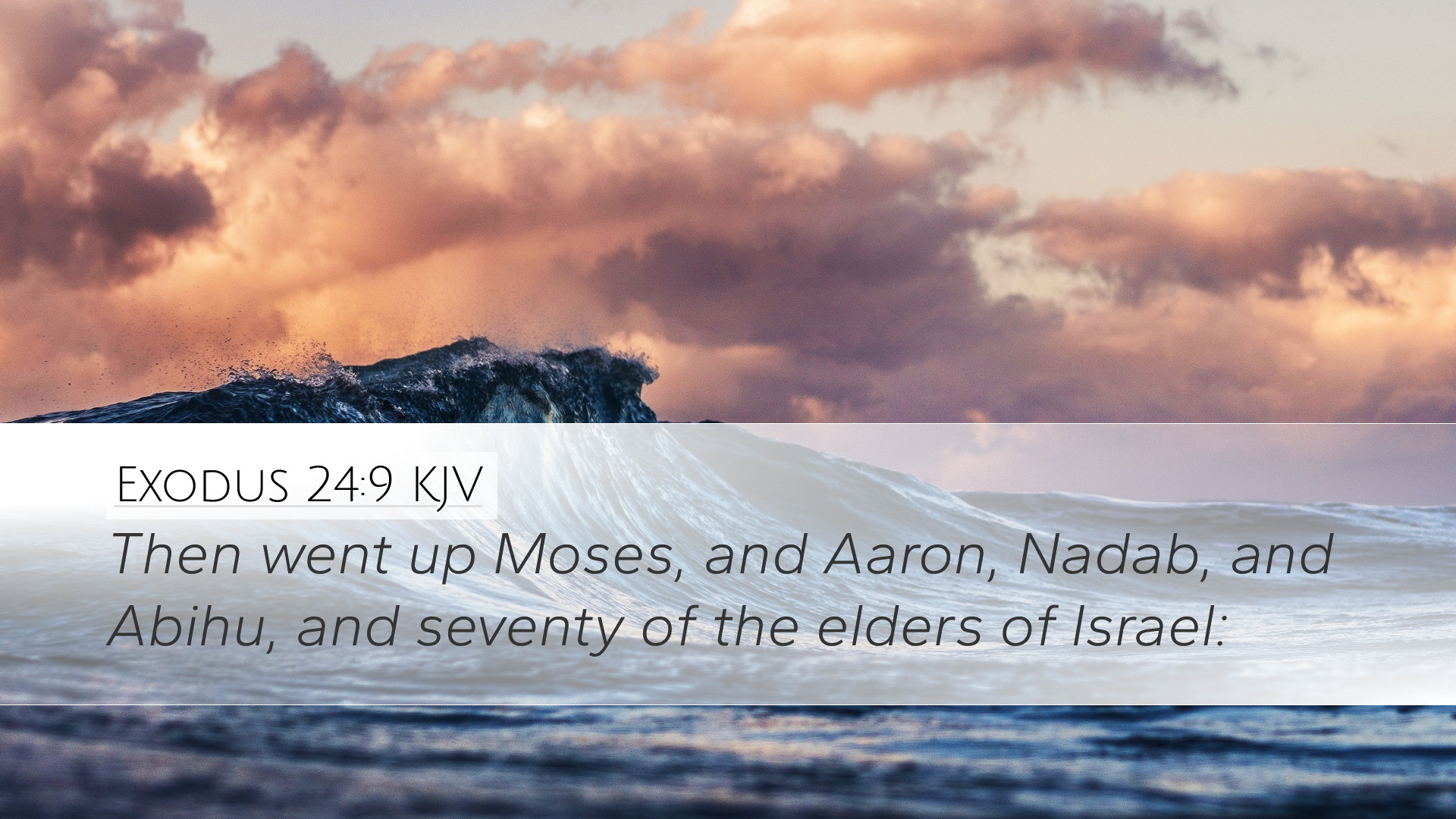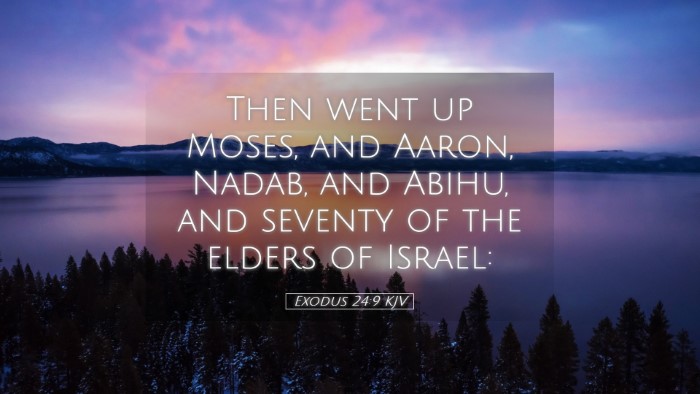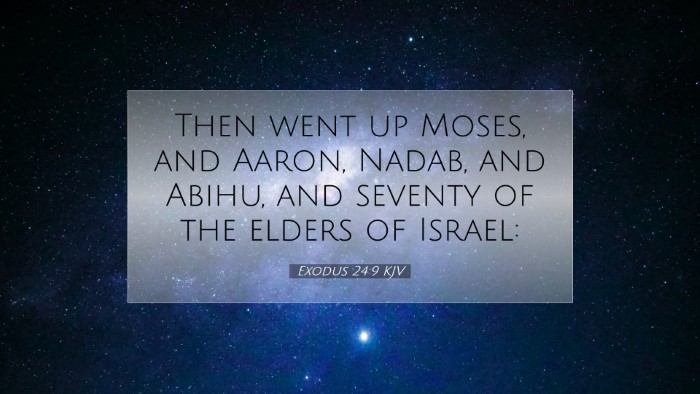Exodus 24:9 - Summary of Commentary
Verse Text: "Then went up Moses, and Aaron, Nadab, and Abihu, and seventy of the elders of Israel."
Introduction
The passage of Exodus 24:9 marks a pivotal moment in the narrative of the Israelites’ journey towards receiving the Law at Sinai. This event illustrates a significant demonstration of God's covenant with His people and the communal aspect of worship and divine encounter.
Contextual Background
This verse comes shortly after God has given the Ten Commandments to Moses. Following the proclamation of the Law, God invites representatives of Israel to ascend the mountain, symbolizing a call to communion and fellowship with Him. Each character in this verse serves a specific purpose and reflects the structure of authority and holiness among the Israelites.
Key Characters
- Moses: As the leader and mediator, Moses embodies obedience to God's command, facilitating the covenant relationship.
- Aaron: The High Priest plays a vital role in representing both mediators of worship and leaders of the people.
- Nadab and Abihu: As Aaron's sons, their inclusion signifies the priestly family's integral role in Israel's spiritual life. However, their subsequent actions are stark reminders of the gravity associated with holiness (see Leviticus 10).
- Seventy Elders: Represents the leadership of Israel; their inclusion emphasizes the communal aspect of the covenant and the shared responsibility of spiritual leadership.
Theological Significance
This verse encapsulates themes of leadership, covenant, and divine presence. According to Matthew Henry, the act of ascension to the mountain is indicative of the leaders' unique role in representing the people before God.
Albert Barnes highlights the importance of this gathering, demonstrating that the covenant established was not merely individualistic but intended for the community as a whole. This aspect underlines God's desire for collective fellowship and the accessibility of His presence through ordained leaders.
Covenant and Community
The gathering of representatives serves as a foreshadowing of the communal aspects of the New Covenant, whereby all believers are granted access to God through Christ. This principle resonates with the teachings of Paul in the New Testament where believers are called to function as a body (1 Corinthians 12).
Spiritual and Practical Application
As pastors and leaders today reflect on this scripture, they are reminded of the importance of spiritual leadership and the responsibility to guide others in the covenant relationship with God. It calls ministers to consider their role not only in terms of teaching but also in leading communities into deeper communion with God.
The involvement of the elders signifies that church leadership should be a collective undertaking rather than the sole responsibility of one individual. This should encourage collaboration and unity within the church body.
Conclusion
Exodus 24:9 epitomizes a moment of significant divine-human interaction and reaffirms the importance of appointed leaders in facilitating relationships between God and His people. It challenges today’s leaders to foster a spirit of communion and to invest in the collective responsibility of shepherding their congregations into deeper understanding and practice of the faith.


